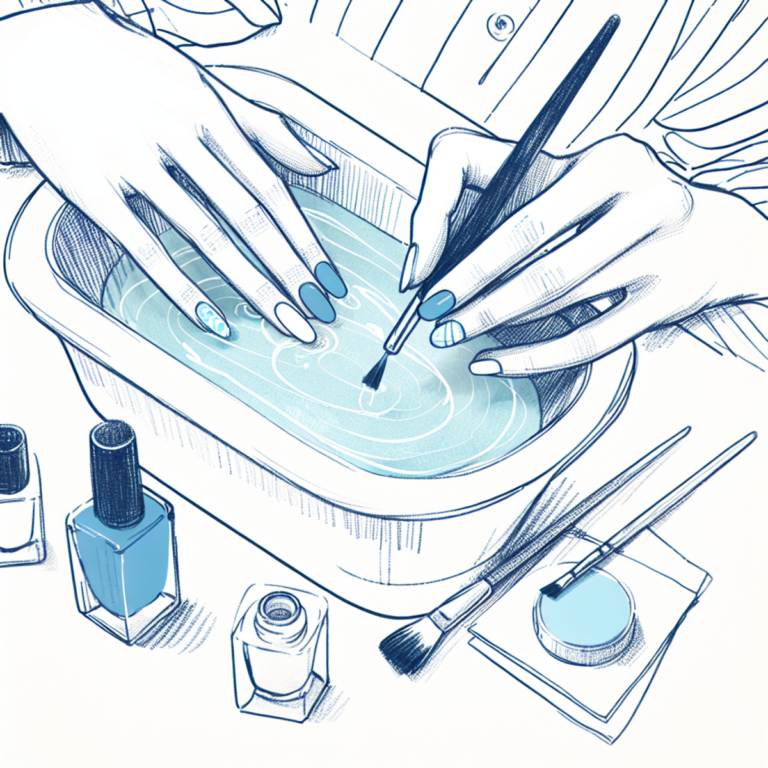Acne: Treatment, Types, Causes, Prevention, and More

Introduction
Acne is a common skin condition that affects millions of people around the world, especially teenagers and young adults. It occurs when hair follicles become clogged with oil, dead skin cells, and bacteria, leading to the formation of various types of blemishes such as whiteheads, blackheads, and cysts. To effectively address acne, it is important to have a thorough understanding of its different types, underlying causes, and available treatment options.
Understanding acne is crucial for effective treatment and prevention. Knowledge of the different types of acne, ranging from hormonal to cystic, allows individuals to tailor their skincare routines and select appropriate treatments. Recognizing triggers such as diet or stress can help in minimizing breakouts.
In this article, you will learn about:
- The definition and classification of acne
- Various types of acne and their characteristics
- Causes behind the condition
- Common triggers for breakouts
- Prevention strategies to minimize occurrences
- Treatment options available for mild to severe cases
- Home remedies that can effectively manage pimples without harsh chemicals
By gaining insight into these aspects of acne, you empower yourself to take control of your skin health.
Understanding Acne
Acne is a long-lasting skin condition that occurs when hair follicles become clogged with oil, dead skin cells, and bacteria. It mainly affects areas of the body where there are many sebaceous (oil) glands, such as the face, neck, shoulders, back, and chest. There are different types of acne, which can be classified based on how severe they are and what kind of lesions they cause.
Common Types of Acne Lesions
Here are some common types of acne lesions:
- Whiteheads: Closed clogged pores that appear as small white bumps.
- Blackheads: Open clogged pores that darken due to oxidation.
- Papules: Small, raised red bumps that can be tender.
- Pustules: Similar to papules but filled with pus, appearing as red bases with white tops.
- Nodules: Hard lumps beneath the skin that can be painful.
- Cysts: Deep, painful lumps filled with pus that can lead to scarring.
The Emotional Impact of Acne
Acne affects more than just your physical appearance. Many people feel emotionally distressed because of their visible imperfections. When acne persists, it can lead to feelings of self-consciousness and anxiety, which may impact social interactions and overall quality of life. Understanding these emotional aspects is important for finding effective ways to treat and prevent acne.
Types of Acne
Acne comes in different forms, each with its own characteristics and treatment needs. Understanding these various types can help in managing it effectively.
1. Fungal Acne
Fungal acne is caused by an overgrowth of yeast in hair follicles. It often appears as small, itchy bumps resembling traditional acne but may not respond to typical treatments.
2. Cystic Acne
Cystic acne is characterized by painful, deep lumps beneath the skin. These cysts can lead to scarring if untreated. Treatment options include prescription medications like isotretinoin or antibiotics for severe cases.
3. Hormonal Acne
Hormonal acne is linked to hormonal fluctuations, particularly during puberty, menstruation, or pregnancy. It commonly occurs along the jawline and chin. Management strategies include hormonal therapies like birth control pills or anti-androgens.
4. Nodular Acne
Nodular acne is a severe form of acne featuring hard lumps beneath the skin’s surface. These nodules are painful and can last for extended periods. Treatment approaches often involve strong prescription medications or professional interventions such as drainage procedures.
Recognizing these types is crucial for tailored treatment strategies. Each type requires a unique approach to effectively address symptoms and prevent future breakouts.
Causes of Acne
Understanding the causes of acne is essential for effective treatment. Several factors contribute to this skin condition, including:
- Excess Oil Production: Hormonal fluctuations, particularly during puberty, menstruation, or hormonal therapies, can lead to increased oil production. This excess sebum clogs hair follicles.
- Accumulation of Dead Skin Cells: The skin continuously sheds dead cells. When these cells accumulate without proper exfoliation, they can block pores and create an environment conducive to acne formation.
- Role of Bacteria: The presence of Propionibacterium acnes, a type of bacteria that naturally resides on the skin, can aggravate inflammation. When hair follicles are clogged, bacteria proliferate, leading to infection and further inflammation.
- External Factors: Environmental influences also play a role in acne development. Tight clothing may trap sweat and oil against the skin, contributing to blocked pores. Pollution introduces harmful particles that can irritate the skin. Certain medications and cosmetic products containing heavy oils or fragrances can exacerbate acne as well.
By identifying and understanding these causes, you can take proactive steps in managing your skincare routine and choosing appropriate treatments. Awareness of both internal and external contributors allows for a more comprehensive approach to preventing breakouts.
Triggers for Acne Breakouts
Understanding the triggers for acne breakouts is crucial for effective management. Several factors can influence the frequency and severity of breakouts:
1. Stress as a Psychological Trigger
Psychological stress can lead to hormonal changes, increasing oil production in the skin. This excess oil can heighten the likelihood of clogged pores, resulting in acne. To combat this, it’s important to explore effective strategies for managing stress and its impact on your skin.
2. Dietary Influences
Research suggests that diets high in glycemic index foods may exacerbate acne. Foods such as sugary snacks and refined carbohydrates can spike insulin levels, leading to increased oil production. Incorporating a balanced diet with low glycemic options may help mitigate breakouts. For more specific dietary advice, refer to this comprehensive guide on how certain foods can influence hormonal acne.
3. Genetic Predisposition and Family History
A family history of acne can increase your risk of developing this condition. If both parents experienced severe acne, there’s a higher chance you might too, indicating a genetic link that affects skin health. Statistics reveal that acne prevalence rates are notably high among individuals with such familial ties.
4. Impact of Beauty Products on Skin Health
The products you use daily can also play a role. Heavy makeup, oily sunscreens, and certain skincare formulations may clog pores. Opting for non-comedogenic products can help prevent irritation and breakouts.
Each of these triggers contributes to how to get rid of breakouts. Awareness and management of these factors are essential steps in preventing future occurrences while navigating through acne challenges effectively. For a deeper understanding of acne and its various forms, consider exploring this overview on acne which provides valuable insights into its causes and treatments.
Prevention Strategies for Acne Breakouts
1. Establishing a Consistent Skincare Routine for Acne Prevention
A proper skincare routine is essential for preventing acne breakouts. By adopting a consistent regimen, you can reduce the likelihood of clogged pores and bacterial growth. Here are key elements to include:
Gentle Cleansing
Use a mild cleanser that effectively removes dirt, oil, and makeup without stripping your skin’s natural moisture. Look for products labeled as non-comedogenic to avoid clogging pores.
Exfoliation
Regular exfoliation helps remove dead skin cells that can accumulate and block follicles. Choose gentle exfoliants containing alpha hydroxy acids (AHAs) or beta hydroxy acids (BHAs). Aim to exfoliate 1-2 times per week, adjusting based on your skin’s sensitivity.
Moisturizing
Hydration is vital, even for oily skin types. Select lightweight, oil-free moisturizers that won’t contribute to breakouts. Ingredients like hyaluronic acid can provide essential moisture without clogging pores.
In addition to these basic steps, consider these additional practices:
- Sun Protection: Daily sunscreen application protects against UV damage while preventing post-inflammatory hyperpigmentation from acne scars. Opt for non-comedogenic formulas specifically designed for acne-prone skin.
- Regular Product Review: Periodically evaluate your skincare products. Be aware of any changes in formulations that might trigger breakouts. If you notice an increase in acne after introducing a new product, discontinue use and seek alternatives.
- Avoid Over-Washing: While cleansing is crucial, over-washing can irritate the skin and lead to increased oil production. Stick to washing your face twice daily—once in the morning and once before bed.
By following these prevention strategies for acne breakouts through a consistent skincare routine, you create a healthier environment for your skin. This proactive approach can significantly reduce the frequency and severity of breakouts while promoting overall skin health. Incorporating these practices into your daily life will help maintain clearer skin over time, ultimately leading to improved confidence and well-being.
2. Choosing Non-Comedogenic Products to Avoid Clogged Pores
Selecting non-comedogenic products is a vital step in any skincare routine for acne prevention. These products are formulated specifically to prevent clogged pores, which can trigger breakouts. Here’s how they benefit acne-prone skin:
- Prevents Clogs: Non-comedogenic formulations avoid heavy oils and ingredients that can block hair follicles, thereby reducing the likelihood of developing acne lesions.
- Lightweight Options: Many non-comedogenic products are lightweight, ensuring they hydrate without overwhelming the skin.
When shopping for skincare or makeup, look for labels that explicitly state “non-comedogenic.” Common ingredients to avoid include:
- Mineral Oil
- Petrolatum
- Lanolin
Incorporating non-comedogenic options into your daily regimen not only supports prevention strategies for acne breakouts but also complements your existing skincare routine. Regular use of these products can significantly minimize the risk of future breakouts while promoting clearer skin.
Choosing the right products is just one aspect of effective acne management. Lifestyle adjustments also play an essential role in maintaining skin health.
3. Making Lifestyle Adjustments to Minimize Pimples
Preventing future breakouts involves more than just a solid skincare routine for acne prevention. Lifestyle adjustments play a crucial role in maintaining clearer skin. Consider the following strategies:
Stress Management Techniques
High-stress levels can trigger hormonal changes that worsen acne. Incorporate stress-reducing activities such as:
- Yoga: Promotes relaxation and balances hormone levels.
- Meditation: Helps calm the mind and reduce anxiety.
- Regular Exercise: Boosts endorphins, improving mood and reducing stress.
Balanced Diet
Your food choices impact your skin health. Opt for:
- Low Glycemic Index Foods: These help maintain stable blood sugar levels, which can minimize breakouts.
- Hydration: Drinking adequate water supports overall skin health.
Sleep Hygiene
Poor sleep can lead to increased stress and inflammation. Aim for:
- 7-9 hours of quality sleep: Establish a regular sleep schedule to promote restorative rest.
Avoiding Skin Irritants
Be mindful of products that may irritate your skin. Look for:
- Fragrance-free and hypoallergenic products: These minimize the risk of adverse reactions.
Adopting these lifestyle adjustments can significantly contribute to preventing pimples. Implementing effective prevention strategies for acne breakouts will enhance your overall skincare regimen and help you find ways on how to get rid of pimples naturally and permanently.
Treatment Options for Mild to Severe Cases
1. Over-the-Counter Treatments like Benzoyl Peroxide or Salicylic Acid
Mild acne cases often respond well to over-the-counter treatments. These products contain active ingredients that target the bacteria responsible for acne and help reduce inflammation.
Benzoyl Peroxide
- A common ingredient found in many topical treatments.
- Works by killing acne-causing bacteria, specifically Propionibacterium acnes.
- Helps to unclog pores by removing dead skin cells and excess oil.
- Available in various concentrations, typically ranging from 2.5% to 10%. Start with a lower concentration to assess skin tolerance.
- May cause dryness or irritation; using a moisturizer can help mitigate these effects.
Salicylic Acid
- Another popular choice for treating mild acne.
- Functions as a beta hydroxy acid (BHA) that penetrates the skin and dissolves excess oil within the pores.
- Encourages the shedding of dead skin cells, preventing clogged pores and breakouts.
- Often found in cleansers, toners, and spot treatments at concentrations of 0.5% to 2%. Regular use can lead to clearer skin over time.
Both Benzoyl Peroxide and Salicylic Acid are effective yet may require time for noticeable results. Consistent application is key in managing mild acne effectively.
For those who experience sensitivity, it’s essential to introduce these treatments gradually into your skincare routine. Begin with every other day application before increasing frequency as your skin adjusts.
Additionally, combining these treatments with non-comedogenic moisturizers can enhance effectiveness while minimizing potential dryness caused by active ingredients.
When considering over-the-counter options, pay attention to product labels and choose those suitable for your skin type. Always conduct a patch test prior to full application to ensure compatibility with your skin.
In cases where over-the-counter methods do not yield satisfactory results, seeking advice from a dermatologist may be necessary for further assessment and tailored treatment plans.
2. Prescription Medications such as Oral Antibiotics or Retinoids
For individuals experiencing moderate to severe acne, prescription medications can provide effective treatment options. These medications target deeper layers of the skin where more complex cases occur.
Key types of prescription treatments include:
- Oral Antibiotics: Help reduce inflammation and bacteria on the skin. Commonly prescribed antibiotics include doxycycline and minocycline.
- Retinoids: Derivative of Vitamin A, retinoids work by promoting cell turnover and preventing clogged pores. Examples include tretinoin and adapalene.
Both oral antibiotics and retinoids are effective for targeting the underlying issues associated with moderate to severe acne. They not only address existing lesions but also help in preventing future breakouts.
Alternative options like hormonal therapies may be considered, especially for women whose acne is linked to hormonal fluctuations. Birth control pills are often prescribed to regulate hormones and reduce the occurrence of acne.
When exploring treatment options, it’s essential to consult with a dermatologist to identify the best course based on individual skin types and conditions. This personalized approach can lead to optimal outcomes in managing acne effectively.
3. Hormonal Treatments (e.g., Birth Control Pills) Targeting Hormonal Imbalances in Women
Hormonal treatments can be an effective option for women experiencing recurring acne due to hormonal fluctuations. Such fluctuations often occur during specific phases of the menstrual cycle, pregnancy, or menopause. These hormonal changes can lead to increased oil production and clogged pores, fueling acne breakouts.
Key aspects of hormonal treatments include:
- Birth Control Pills: Commonly prescribed to regulate hormones and reduce the severity of acne in women. They work by lowering androgen levels, which are responsible for excess oil production.
- Anti-androgens: Medications like spironolactone may also be used to block the effects of androgens on sebaceous glands, providing relief from hormonal-related breakouts.
Hormonal therapies are particularly beneficial when combined with other treatment options for mild to severe cases. While over-the-counter treatments focus on immediate symptoms, prescription medications and professional treatments can address underlying hormonal causes.
This multifaceted approach ensures comprehensive management of acne, tailored to individual needs based on the severity level. Understanding that hormonal imbalances play a significant role in acne development empowers women to seek appropriate care and improve their skin health effectively.
4. Professional Treatments like Chemical Peels or Laser Therapy Administered by Dermatologists or Licensed Estheticians
Professional treatments are essential for addressing moderate to severe acne cases effectively. These methods delve deeper than traditional over-the-counter treatments, providing targeted solutions that can yield significant results.
Common professional treatments include:
- Chemical Peels: These involve applying a solution that exfoliates the outer layer of skin. This process unclogs pores, reduces inflammation, and promotes new skin cell growth. Various types of chemical peels are available, tailored to different skin types and severity levels.
- Laser Therapy: Utilizing focused light beams, laser therapy targets acne-causing bacteria and reduces oil production within the skin. This method also helps improve skin texture and minimize scarring.
Both chemical peels and laser therapy require administration by trained professionals such as dermatologists or licensed estheticians. They assess individual skin conditions and customize treatments accordingly.
In contrast to over-the-counter treatments for mild cases, which often focus on surface-level issues, these professional approaches address underlying problems more effectively. Prescription medications and hormonal therapies may complement these treatments, ensuring a comprehensive strategy against acne across various severity levels.
Home Remedies For Managing Pimples Effectively Without Harsh Chemicals
Many individuals seek home remedies for managing pimples effectively without harsh chemicals. Natural alternatives can be gentle and effective, especially for those with sensitive skin. These remedies target specific types of acne, including cystic acne.
1. Exploring Natural Remedies Suitable For All Skin Types Including Sensitive Ones
1.1 Tea Tree Oil
Renowned for its antibacterial properties, tea tree oil combats the bacteria responsible for acne. It helps reduce inflammation and redness associated with active lesions.
- Application: Dilute tea tree oil with a carrier oil (like coconut or jojoba) before applying to affected areas to prevent irritation.
1.2 Green Tea Extract
Contains antioxidants that soothe inflammation and reduce redness. May help decrease the production of sebum, which contributes to clogged pores.
- Application: Brew green tea, cool it, and use it as a toner by applying it with a cotton ball to clean skin.
1.3 Aloe Vera
Known for its calming properties, aloe vera can hydrate the skin while reducing irritation. Its anti-inflammatory effects make it suitable for treating various acne types.
- Application: Apply fresh aloe vera gel directly from the leaf to the affected area.
1.4 Honey
A natural antibacterial agent, honey can help clear up breakouts. Its soothing properties aid in healing and minimizing scars left by acne.
- Application: Dab raw honey on blemishes and leave it on for about 20 minutes before rinsing off.
1.5 Apple Cider Vinegar (ACV)
Contains organic acids that may help kill acne-causing bacteria. Its pH-balancing effect can also restore the skin’s natural barrier.
- Application: Mix one part ACV with three parts water, apply to the skin with a cotton pad, and rinse after a few minutes.
These natural remedies are suitable for most skin types but always perform a patch test before widespread application. Incorporating these options into your skincare routine provides gentle care while addressing acne concerns effectively. Embracing these remedies offers an authentic approach to managing pimples without relying on harsh chemicals.
FAQs (Frequently Asked Questions)
What is acne and what are its common types?
Acne is a prevalent skin condition characterized by various lesions such as whiteheads, blackheads, and more. Common types of acne include fungal acne, cystic acne, hormonal acne, and nodular acne, each with distinct characteristics and treatment options.
What causes acne breakouts?
Acne breakouts can be caused by several factors including excess oil production due to hormonal fluctuations, accumulation of dead skin cells that clog pores, the presence of bacteria leading to inflammation, and external factors such as tight clothing and pollution.
How can I prevent acne breakouts?
Preventing acne involves establishing a consistent skincare routine that includes gentle cleansing, exfoliation, and moisturizing. Additionally, choosing non-comedogenic products can help avoid clogged pores. Making lifestyle adjustments such as stress management and dietary changes also play a crucial role in minimizing breakouts.
What treatment options are available for acne?
Treatment options for acne range from over-the-counter solutions like benzoyl peroxide or salicylic acid for mild cases to prescription medications such as oral antibiotics or retinoids for moderate to severe cases. Hormonal treatments may also be effective for women experiencing hormonal-related breakouts. Professional treatments like chemical peels or laser therapy are available through dermatologists.
Are there home remedies for managing pimples?
Yes, there are several natural remedies suitable for all skin types that can help manage pimples effectively without harsh chemicals. For instance, tea tree oil has antibacterial properties while green tea extracts can soothe inflammation caused by active lesions.
How does stress influence acne breakouts?
Stress acts as a psychological trigger that can exacerbate acne breakouts. Managing stress through relaxation techniques and lifestyle adjustments may help reduce the frequency and severity of pimples.










